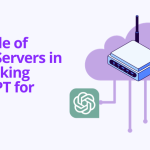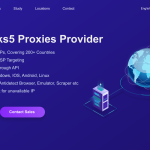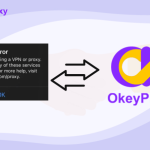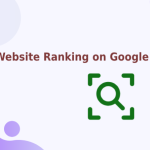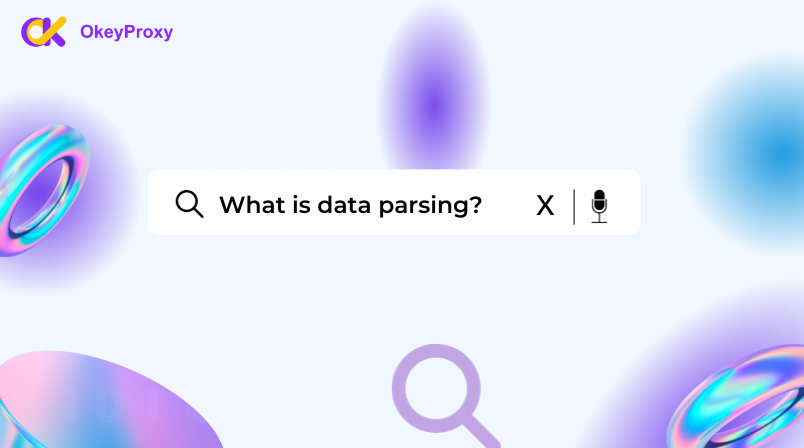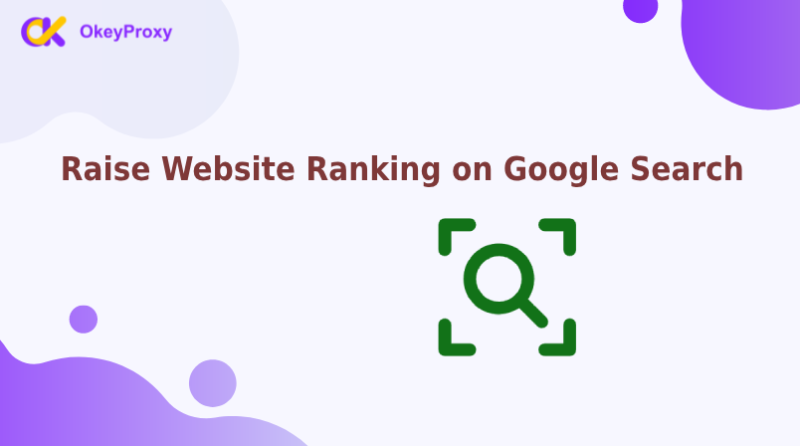Data parsing, the conversion of data from one format to another, is widely used for structuring data, which is usually done to make existing, unstructured, unreadable data easier to understand.
データ解析とは?
As a cornerstone of modern data processing, briefly, data parsing refers to the process of analyzing and extracting relevant information from unstructured or semi-structured data sources. It involves breaking down the data into smaller components, such as fields, records, or attributes, to identify and extract specific data points. This structured information can then be stored, analyzed, and utilized for various purposes.
Why Data Parsing is Necessary?
コンピュータが効果的に通信するためには、翻訳が必要になることが多い。機械が認識または理解できない現在の形式のデータ列を理解するのを助けるために、構文解析はデータをデバイスが理解し操作できる形式に変換するために使用される。
Data parsing is a process that changes unstructured and illegible strings of data into structured and simple collections that computers can easily understand, which has many benefits:
- Data Organization: Converts raw or unstructured data into structured formats for easier analysis and manipulation.
- Automation: Simplifies workflows by automatically extracting and formatting information.
- Interoperability: Ensures systems with varying data formats can seamlessly communicate.
- Improved Decision-Making: Provides clean and actionable data for analytics or reports.
金融や教育からビッグデータやeコマースまで、データ分析は今日、さまざまな業界で広く利用されている。効果的なデータ解析ツールは、生のデータから関連情報を手作業なしで抽出することができます。解析されたデータは、市場調査や価格比較など、様々な活動に利用することができます。 この技術により、企業は情報に基づいた意思決定を行い、競争上の優位性を得ることができます。さらに、データ解析は作業効率を向上させ、面倒な作業を自動化することで時間と人手を節約し、コストを削減する。今日の熾烈な市場競争において、データ分析は企業業績を左右する重要な要素となっている。
Use Cases of Parsed Data
- Business Intelligence: Integrating and analyzing data for decision-making and trend forecasting.
- Web Scraping: Extracting data from websites for e-commerce, lead generation, and media monitoring.
- Application Development: Automating data input, powering real-time apps, and supporting machine learning.
- Financial Analysis: Real-time market data parsing for trading, risk assessment, and fraud detection.
- Marketing: Personalizing campaigns, analyzing SEO, and evaluating ad performance.
- Healthcare: Structuring patient data, aiding drug research, and monitoring public health trends.
- Legal: Extracting and organizing legal documents for compliance and research.
- Supply Chain: Managing inventory, tracking shipments, and optimizing delivery routes.
- Education: Analyzing student data, parsing research content, and curating learning materials.
- Social Media: Analyzing sentiment, tracking trends, and moderating content.
- Retail: Analyzing customer feedback, optimizing loyalty programs, and forecasting demand.
- Government: Assisting in policy development, crisis management, and ensuring transparency.
How Does Data Parsing Work?
Data parsing typically involves the following steps:
-
Input Identification
Reading raw data from files, APIs, or web pages.
-
Tokenization
Breaking down data into smaller elements like words, symbols, or numbers.
-
Syntactic Analysis
Validating the structure or format against predefined rules (e.g., XML, JSON schemas).
-
Data Extraction
Retrieving relevant information based on the context.
-
Output Conversion
Formatting the extracted data into desired structures like tables, lists, or objects.
Downsides of Data Parsing
データを解析する場合、通常は生の、構造化されていない、あるいは半構造化された入力に対処する。これらの入力は、センサー、ログファイル、データベース、ウェブページなど、さまざまなデータソースに由来する可能性がある。データソースが異なる可能性があるため、データの形式や品質も互いに異なる可能性がある。しかし、クリーニングや変換を行った後でも、入力データには不正確さやエラー、矛盾が残っている可能性がある。
複数の入力文書を同時に処理して時間を節約するために、データ処理を並列化する方法を採用したいと思うかもしれません。しかし、この方法はリソースの使用量を増やし、全体的な複雑さを増す可能性がある。したがって、ビッグデータを効果的に解析するには、高度なツールやテクニックを使用する必要がある。
Popular Data Parsing Formats
- JSON (JavaScript Object Notation): Lightweight and human-readable format widely used in APIs.
- XML (eXtensible Markup Language): A flexible format for structured data exchange.
- CSV (Comma-Separated Values): Commonly used for tabular data storage and import/export tasks.
- HTML: Essential for parsing web page content during web scraping.
Data Parsing Techniques
- Regular Expressions (Regex): Ideal for simple text extractions but lacks scalability for complex structures.
- DOM Parsing: Used for navigating and extracting structured HTML or XML documents.
- Event-Driven Parsing: Suitable for large datasets; processes input as events (e.g., SAX for XML).
- Libraries and Frameworks: Programming languages like Python, Java, or PHP offer robust libraries for parsing.
Popular Tools for Parsing Data
| Tool | 最適 | Language |
|---|---|---|
| ビューティフル・スープ | Web scraping and HTML/XML parsing | パイソン |
| JSON.parse() | Parsing JSON in JavaScript | ジャバスクリプト |
| パンダ | Handling tabular data (e.g., CSV, Excel) | パイソン |
| Xml.etree | XML parsing | パイソン |
| Cheerio.js | Web scraping in Node.js environments | ジャバスクリプト |
| Gson | JSON parsing for Android/Java apps | Java |
Real-World Applications of Data Parsing
- ウェブスクレイピング: Extracting product prices, reviews, or headlines from websites.
- Data Integration: Consolidating information from multiple sources into a unified format.
- Log Analysis: Parsing server logs to monitor activity, detect errors, or track user behavior.
- Natural Language Processing (NLP): Tokenizing and analyzing text for sentiment analysis, translation, or summarization.
- File Conversion: Transforming formats like JSON to CSV for compatibility with databases or analytics tools.
Challenges in Data Parsing
Handling Unstructured Data
Parsing free-form text or inconsistent inputs.
パフォーマンスの問題
Processing large datasets efficiently without excessive resource consumption.
Data Validation
Ensuring parsed data conforms to expected schemas.
Dynamic Content
Adapting to frequently changing formats, especially on websites.
結論
Data parsing is a vital process for extracting structured information from unstructured or semi-structured data sources. By parsing data, businesses can improve data quality, enhance data analysis, and automate processes. The applications of data parsing span across industries, including web scraping, document processing, data integration, and natural language processing. For web scraping or handling dynamic content with proxies, reliable proxy services can enhance performance by bypassing geo-restrictions and ensuring smooth access to data-rich websites. Therefore, オッケープロキシー is believed a reliable provider for users to assist with web scraping tasks. Applying data parsing techniques empowers organizations to unlock the power of structured information, enabling informed decision-making, improved efficiency, and a competitive edge in the data-driven world.





![プロキシの良いターゲットサイトとは?[最適なタイプ] プロキシの良いターゲットサイトとは?](https://www.okeyproxy.com/wp-content/uploads/2024/10/good-target-site-for-proxies-150x83.jpg)
















